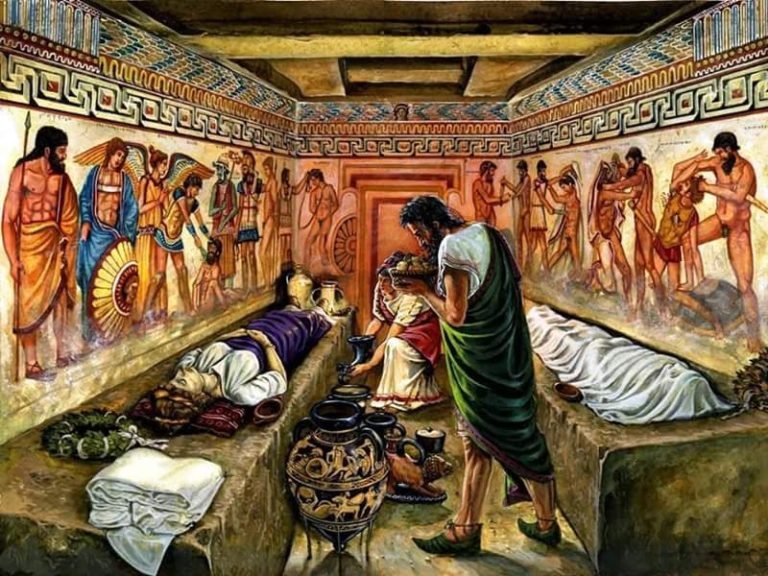Contents
ToggleIn short
In ancient Rome, the Parentalia or dies parentales was a nine-day festival held in honor of the family's ancestors, beginning on February 13. This festival is both private and public, as well as being a holiday.

Parentalia, in honor of the ancestors
Ovid describes sacred offerings of garlands of flowers, wheat, salt, bread soaked in wine, and violets to the "shades of the dead" (Manes or Di manes) in family tombs, located outside Rome's sacred boundary (pomerium). These observances were intended to reinforce mutual obligations and protective bonds between the living and the dead, and were a legitimate duty of the paterfamilias (head of the family).
The Parentalia are concluded on February 21 in the midnight rites of the Feralia, when the paterfamilias sabotage the malevolent and destructive aspects of his manes.
Ovid thought that these were a more rustic, primitive and ancient affair than the Parentalia themselves. They seemed to function as a purification ritual for the next day's Caristia, when the family held an informal banquet to celebrate the friendship between themselves and their benevolent ancestral dead (Lares).
From Parentalia to Caristia, all temples were closed, marriages were forbidden and "magistrates came without their insignia", an indication that no official business was being conducted.
Individuals might also be commemorated on their birthday (dies natalis). Some would be commemorated throughout the year on marked days of the month, such as the Kalends, Nones, or Ides, when lamps might be lit at the grave. The Lemurias of May 9, 11, and 13 were intended to appease the "parentless and hungry" spirits of the dead.
Social networks
On this day and for 9 days, the Romans celebrated Parentalia. This private and public festival made it possible to purify the lives of the living and the dead at the beginning of the renewal of life. #mythology #myth #legend #calendar #rome #parentalia #February 13
Picture
